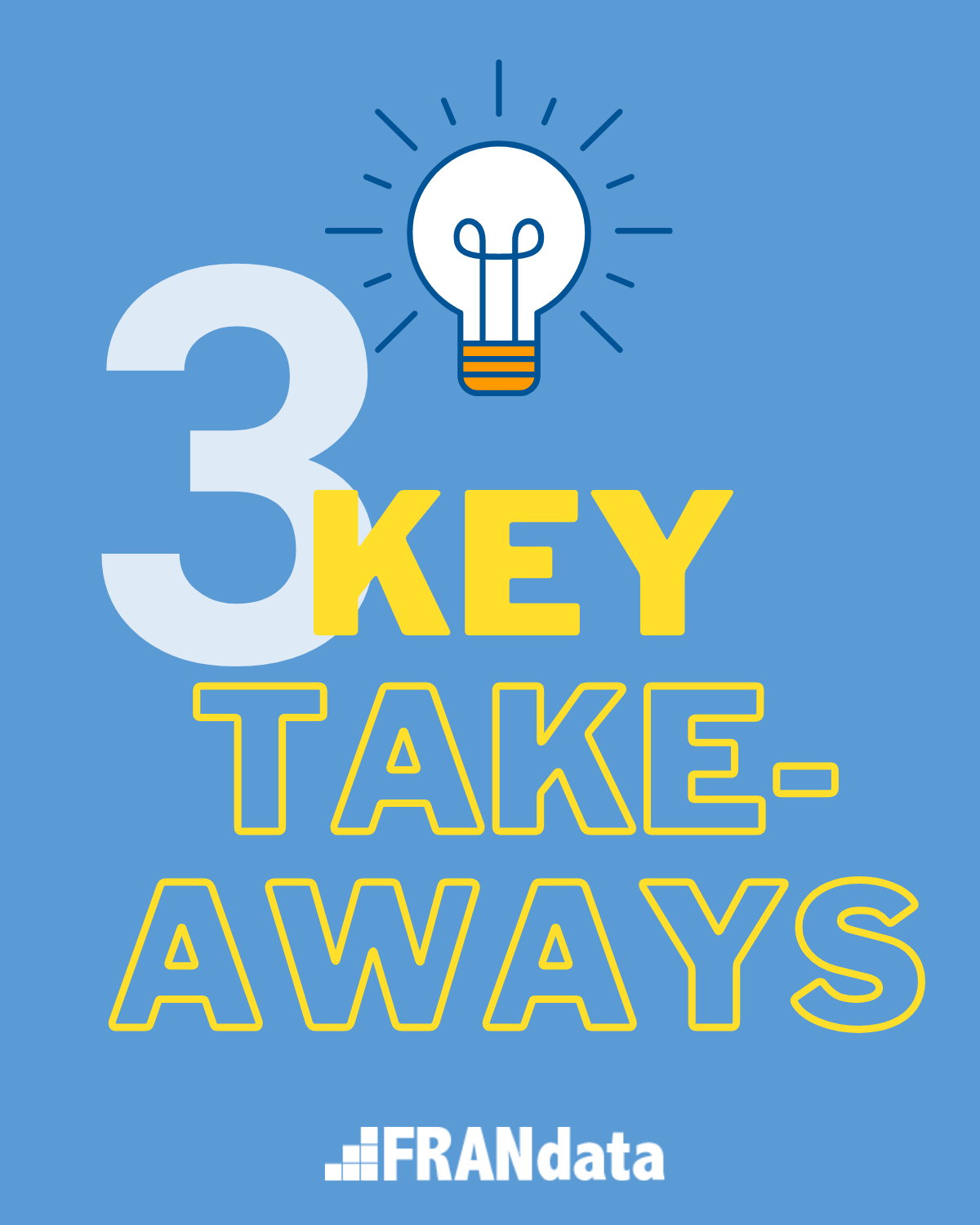 In the complex landscape of franchise financing, the changes in Standard Operating Procedure (SOP) has inadvertently pushed franchise eligibility out of focus for many lenders. While they are engrossed in addressing more immediate changes, lenders have adopted temporary measures. A notable strategy has been to solicit confirmation emails from franchisors, affirming that no modifications have been recorded since their inclusion in the Franchise Directory. We have seen a surge in interest from lenders to learn more about the ways they can handle the changes with hundreds of of lenders attending our recent webinar and emailing us in droves for more information on the certification.
In the complex landscape of franchise financing, the changes in Standard Operating Procedure (SOP) has inadvertently pushed franchise eligibility out of focus for many lenders. While they are engrossed in addressing more immediate changes, lenders have adopted temporary measures. A notable strategy has been to solicit confirmation emails from franchisors, affirming that no modifications have been recorded since their inclusion in the Franchise Directory. We have seen a surge in interest from lenders to learn more about the ways they can handle the changes with hundreds of of lenders attending our recent webinar and emailing us in droves for more information on the certification.
Temporary Workarounds and Growing Worry as New FDDs Come Out
Additionally, another “band-aid” that some lenders have resorted to is asking franchisors to meticulously redline their Franchise Disclosure Document (FDD) or investing thousands of dollars for external legal scrutiny to pinpoint alterations for every loan. This approach, however, comes with limitations. As the premier SBA lender ceased funding any new franchise not listed in the now defunct SBA directory, we see the dependency on the SBA’s Franchise Directory’s accuracy becoming more precarious. The reliability of this directory is diminishing over time, particularly with the issuance of new FDDs.
Concerns Around Passive Ownership
The impending trend points towards a mandate for FRANdata’s Franchisor Eligibility Certification as lenders adapt to new FDD releases. This move is a response to the Small Business Administration’s (SBA) recent alert on a critical concern highlighted during the Georgia Lender’s Conference—passive business ownership. The SBA has clarified that passive ownership does not qualify for their lending program, which has significant implications for many franchisors who market their ventures as “passive”. Instances of funded businesses, later classified as passive, have resulted in defaults, leaving lenders ineligible for SBA reimbursement.
The Franchise Financing Community
Finance brokers, in particular, need to be informed of their crucial role and the importance of the certification process from which they are often detached. It’s essential that they understand that their involvement—or lack thereof—can be a significant obstacle in the process. Experienced and well-respected entities like Benetrends Financial have proactively adopted the Certification of Franchise Eligibility, setting a precedent for other finance brokers. Embracing this certification could streamline the lending process and mitigate risks, thus reinforcing the vitality of maintaining updated and compliant franchise documentation.
The stakes for franchise eligibility are considerably higher than that of general business eligibility. The scale at which a lender can finance a franchise creates a proportional risk. In light of these risks, active collaboration with franchisors and finance brokers is crucial to ensure the procurement of the necessary Franchise Eligibility verification such as our Franchise Registry Franchisor Eligibility Certificate.


